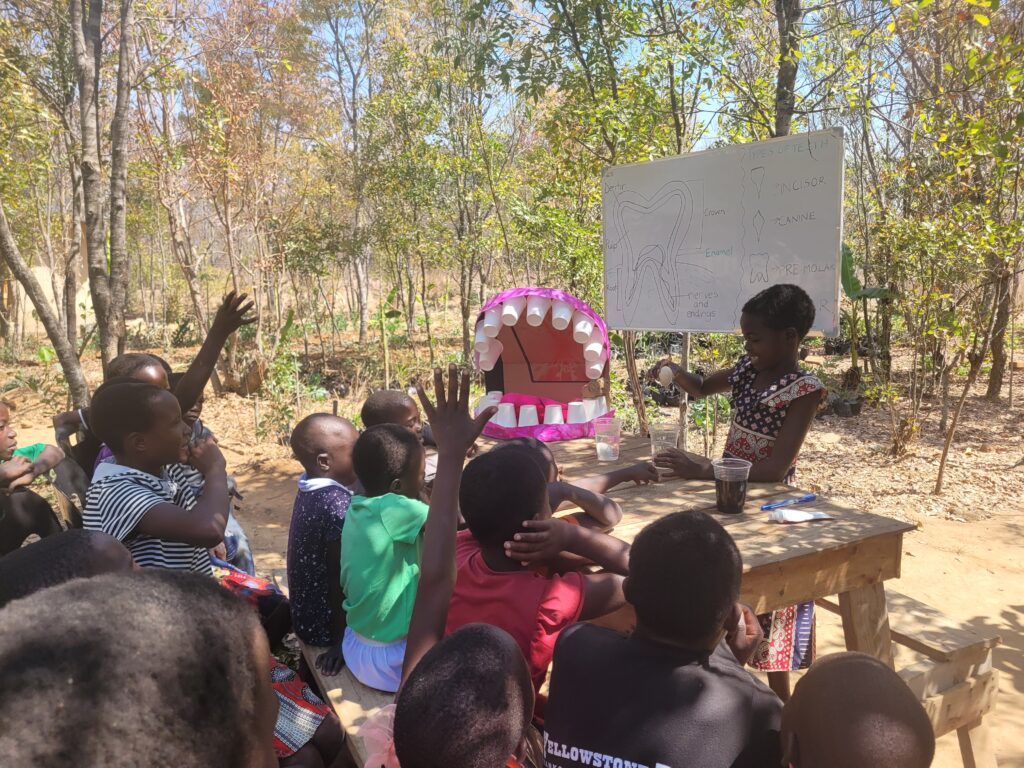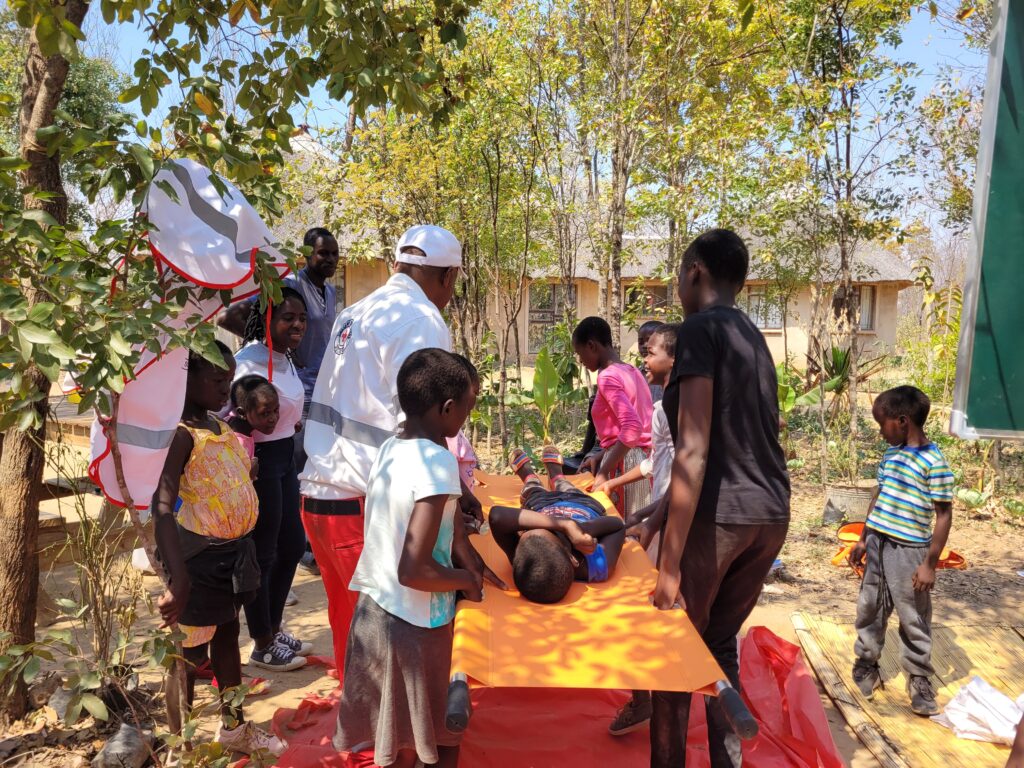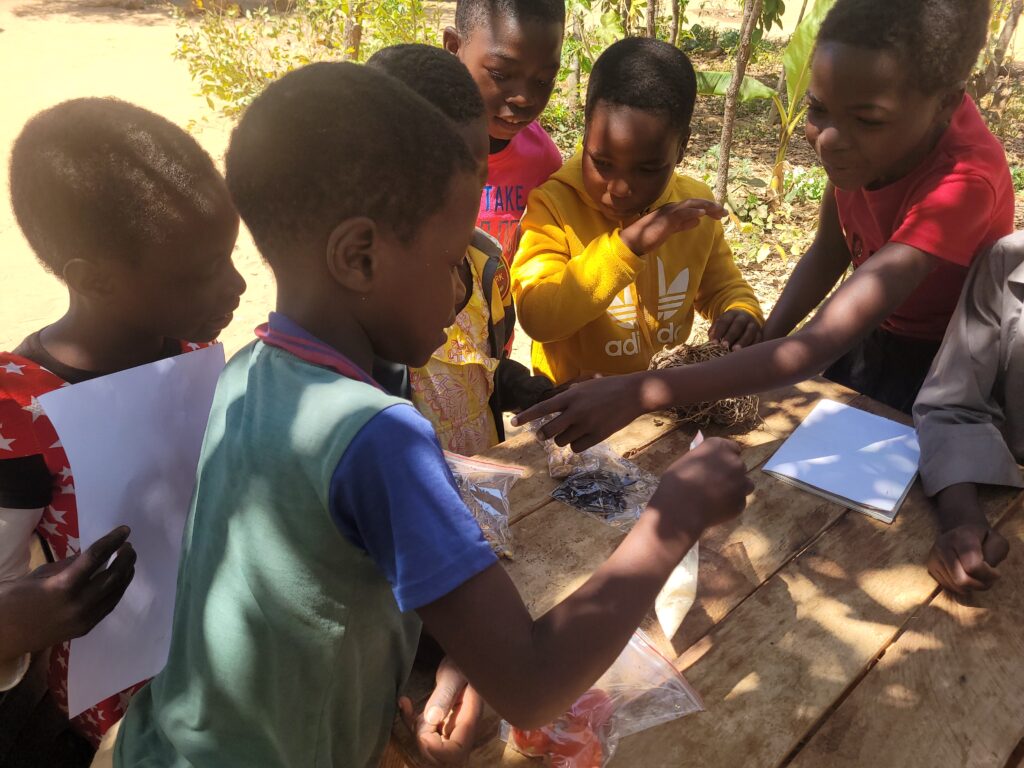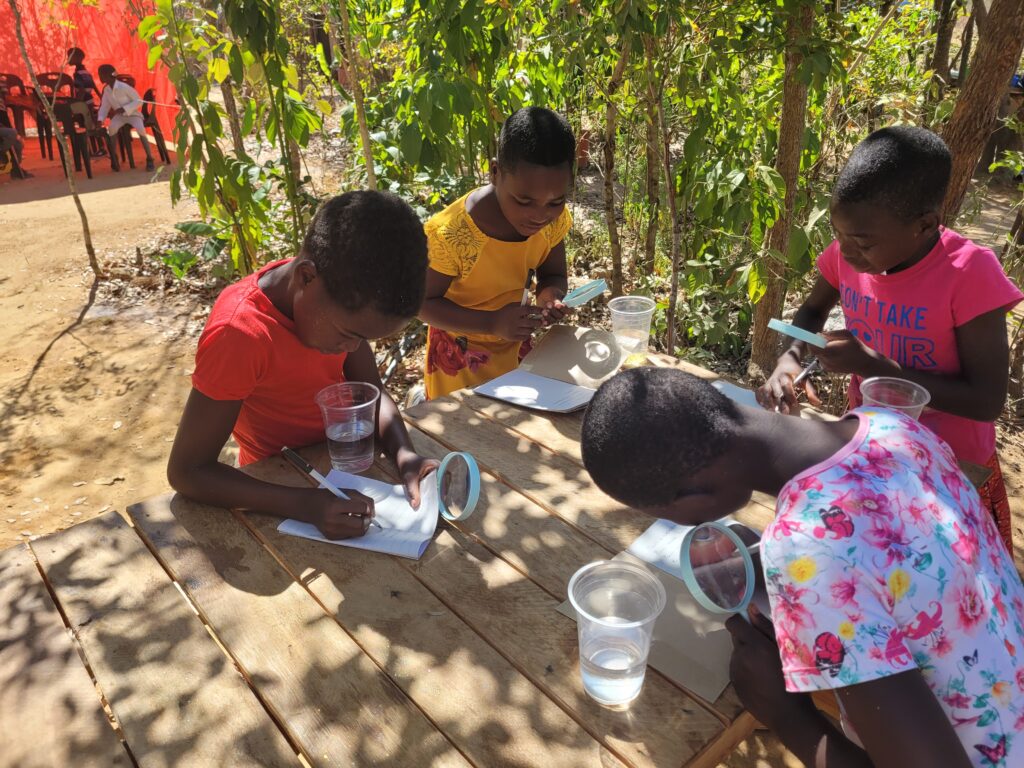
Introduction
We have officially launched our Overcoming Barriers project. Through a series of themed camps, our beneficiaries explore different realities as they embark on nature, culture, science, climate, geography, and information technology expeditions, which are highly interactive and supportive of individual learning experiences. These themed camps develop skills and knowledge that they will not only use in their day-to-day lives but also improve their performance in a formal education setting. Over the next three years in the course of this project, we will conduct camps that fall under the following themes: health, information technology, plant germination, living organisms, water conservation, food literacy, earth and climate, land forms and geography, and art and culture.
Exploration
The themes for these camps were carefully selected to provide our beneficiaries with knowledge and skills that will help them contribute to the global issue of the climate crisis. Therefore, themed camps starting from plant germination up to land forms and geography will take our beneficiaries on a journey that develops competencies enabling them to contribute to curbing the climate crisis. On the other hand, the information technology camp seeks to bridge the digital divide between rural and urban Zimbabwe by providing opportunities for our beneficiaries to acquire IT skills and knowledge through practical, hands-on activities. The health camp, which we conducted with 17 orphans and vulnerable children in August 2024, was designed to promote physical and mental wellness among them. Skills developed through this camp have enabled our beneficiaries to respond in emergencies i.e. incidents or accidents. The main sessions covered during the camp included personal hygiene, environmental hygiene, dental hygiene, mental health, and junior first aid training.



Our approach.
Our themed camps provide learning opportunities that enhance our beneficiaries’ curiosity and ability to formulate their personal opinions. The approach is highly interactive, it utilises experiential and play-based learning methods. Therefore, our beneficiaries can set their learning objectives and derive knowledge from engaging in fun, hands-on learning activities. To carry out the camps, we utilise our curriculum, “The Quest.” It involves going on an adventure where one is free to explore, experiment, and have fun while learning. It follows three phases specified below:
Phase 1: Redefine involves the following;
– Creating an environment that allows participants to freely express themselves, enhancing their curiosity and open-mindedness, which will enable them to dare to understand the unfamiliar.
– Participants discover the theme they will be exploring.
– Participants identify existing knowledge, what is unique to them, and what they are curious to discover in that specific theme.
– Participants identify the steps they want to take and the types of materials they need to investigate a certain theme or topic.
– Participants engage in varied tasks that are suited to their varying needs and enable them to meet learning objectives.
– Participants experience enjoyable challenges throughout the sessions and receive prompts or guidance to demonstrate models that help achieve learning objectives.
– Participants get the opportunity to apply learning independently.
Phase 2: Adaptation involves the following
– Setting up spaces that allow participants to familiarize themselves with themes through practical, hands-on experiences and demonstrations.
– Participants experiment or test out new and old ideas, fact-check and try out new ideas so that participants create their own experiences, get a feel for how certain processes or events occur, and make discoveries.
Phase 3: Discovery involves the following
– Participants record and demonstrate observations by identifying where they might apply them in their own lives.
– Individual assessment where participants ask themselves the following questions: What have we gained? What have we learned?
– Demonstration of gained knowledge or skills in an exhibit in front of their peers and stakeholders/partners.
Gains
Through the theme camps, our beneficiaries acquire knowledge through personal experiences in the absence of a strict and formal teacher-student setup. By being part of a larger group, they develop friendships and networks in a child-friendly environment where individual opinions matter. For this reason, learning opportunities are adapted to meet individual needs and learning objectives, ensuring success in gaining knowledge and skills in different themes or topics. These are gained through fun and interactive learning experiences that include art, dance, crafts, sports, and music. Additionally, the beneficiaries also get opportunities to travel to places that support learning. We always try to ensure that the environment we engage our beneficiaries in supports their development. Therefore, through psycho-social support activities, we promote good mental health and positive coping mechanisms for our beneficiaries.
Join us in overcoming barriers
Are you inspired to join us in our work to empower our beneficiaries with skills and knowledge in addressing the climate crisis? You can get involved by donating in cash or in-kind items needed to provide these learning opportunities. You also provide your skills or knowledge by volunteering with us in one of the camps or events. Remember to share the link to this post to help us reach a larger audience.
Overcoming barriers, creating futures…
Stay tuned for more updates!
